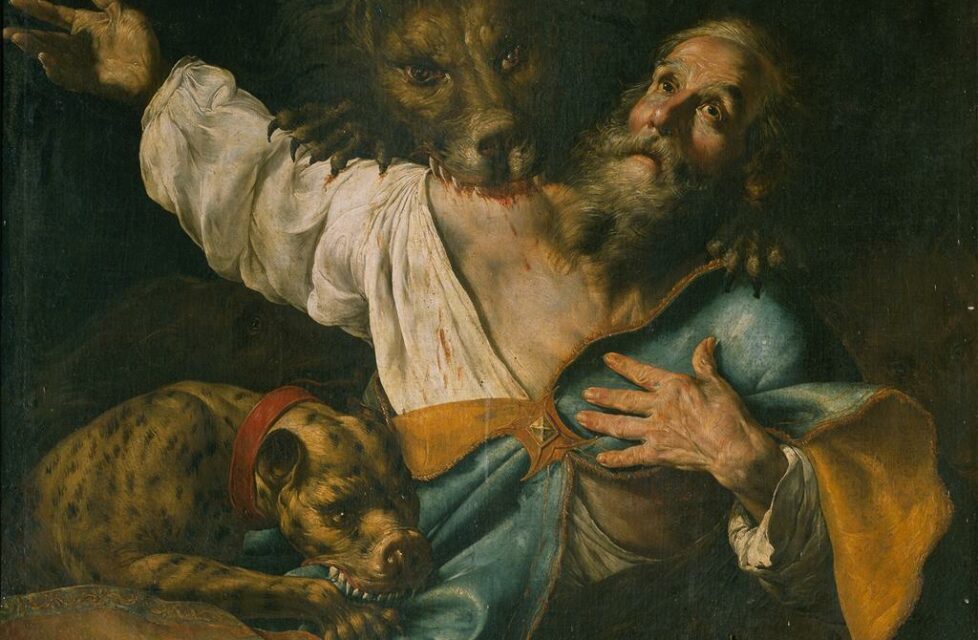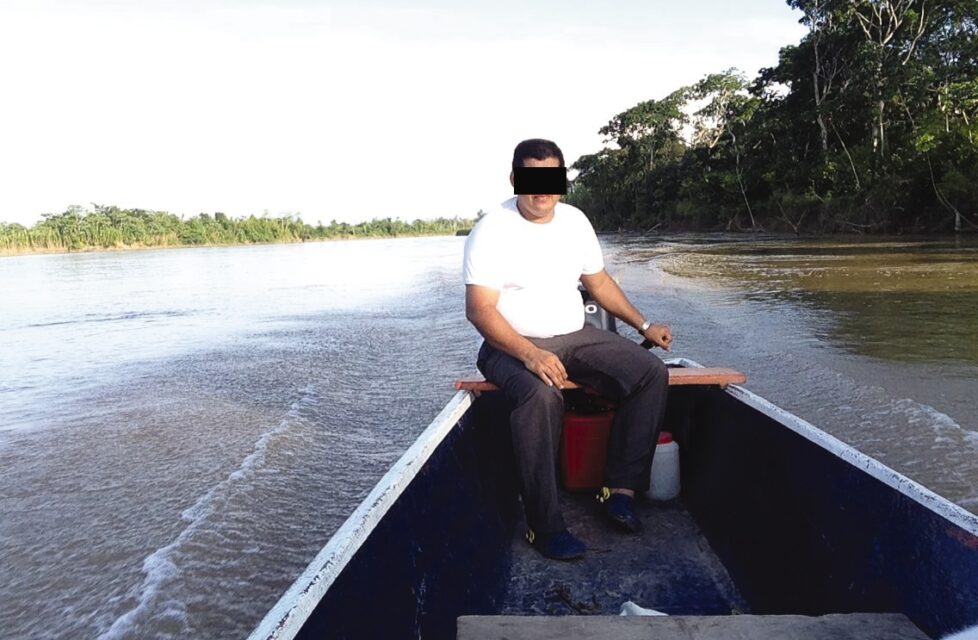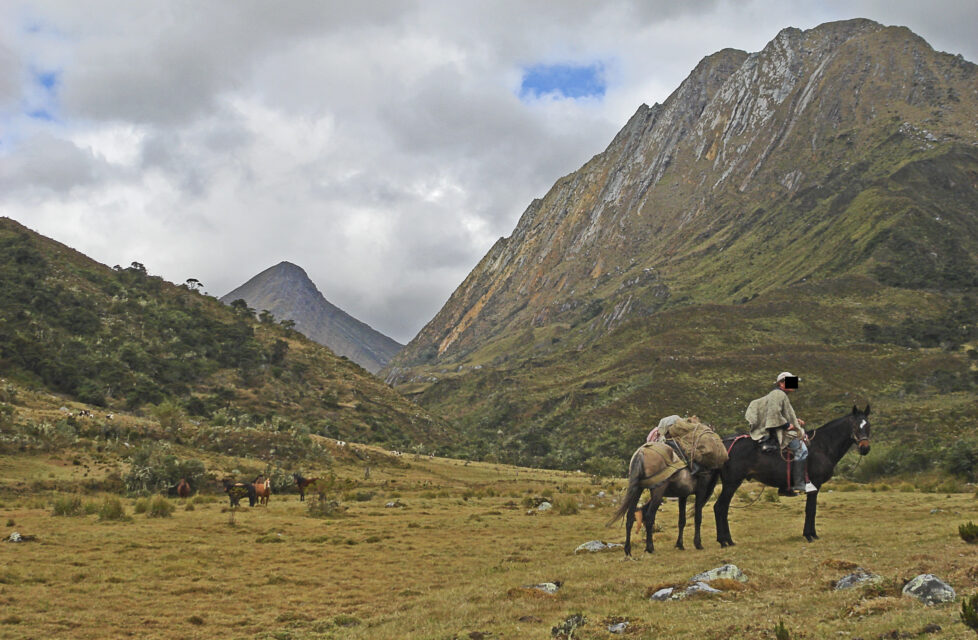James Pino and his wife, Rocio, had already gone to bed for the nightwhen they heard an unexpected knock at the front door. When Pinoopened the door, he was met by two men asking for help with theirmotorcycle. He went outside to help while one of the men stayed by thedoor, where Rocio stood watching her husband. “Is your name Maria?” the man asked her.“No, I am Rocio Pino,” she replied. Suddenly three gunshots shattered the stillness of the night, andwhen Pino turned around he saw his wife fall to the ground. The attackers then jumped on their motorcycle and sped away. Because they lived in one of Colombia’s “red zones,” areas controlledby the Armed Revolutionary Forces of Colombia (FARC), no emergencyservices would respond. The road to their village was heavily mined andguarded by armed FARC guerrillas, so Pino and his daughters were leftto watch Rocio die on their front doorstep. Rocio was known for sharing the Gospel with everyone she met,especially the guerrilla fighters. “All who come here will hear aboutChrist,” she had said. Pino later learned that Rocio’s killers were probably retaliating against her for witnessing to a female guerrilla who hadstopped by their house a few weeks
Read MoreChet Bitterman went in with his eyes open. He knew that sharingthe Gospel could be costly. It could cost everything. But hewillingly went to Colombia to bear the Good News. “…I findthe recurring thought that perhaps God will call me to be martyred forHim in His service in Colombia. I am willing.” Bitterman penned thosewords in his diary before he and his wife, Brenda, arrived in Colombia.Bitterman’s devotion to his Savior was evident: “I am willing.” When the gunmen came into the Wycliffe Bible Translators guesthouse in Bogotá, Colombia, early the morning of January 19, 1981, theywere looking for the mission’s leader, a more high-profile hostage whosecaptivity could somehow help their cause. Who they got instead wasChester A. Bitterman III, “Chet” to his friends. The next day PresidentRonald Reagan took the oath of office, and American hostages left Iranafter 444 days in captivity. Their ordeal was over, with the Bittermans’just beginning. They hadn’t been in Colombia long. Their mission career and theirtranslation work lay before them. They had gone to language school andhelped in various tasks for Wycliffe, including managing the guest house,serving as buyer for goods needed by mission workers and even as radiooperator. Finally, it seemed God was
Read MoreThe small number of children in the village of Santana Ramos inColombia enjoyed coming to school and learning from theirteacher, Dora Lilia Saavedra. She prayed with them every dayand told them about Jesus while they learned. She also sometimes traveled for hours to more distant villages, where there were no teachers, tohelp the children there. She was a good, loving teacher. But one day inNovember, the children’s ordinary school day was interrupted when twomen with guns, wearing army fatigues and boots, walked into the one-room schoolhouse and told the children to leave. “There will be no more school today. Go home and return tomorrow,” they said gruffly. The children quickly gathered their belongings and slipped out of the schoolhouse, wondering what was going to happen. Dora Lilia and her husband, Ferley Saavedra, who also taught at theschool, knew what was going to happen, and they were prepared. Thesemen who had come for them were guerrilla soldiers with the Revolutionary Armed Forces of Colombia (FARC), a Marxist movement characterized by threat, force, and violence. For decades they have terrorized Colombians, targeting Christians in particular. “Christians are dangerous,” they say. “Christians cannot lie. If the army asks them about us, they will
Read MoreSqueals of delight from the children could be heard from down thestreet. Father Francisco Montoya was laughing with them, grinning from ear to ear. The local priest was performing illusions for the kids, reveling in the smiles that radiated from their faces. This was Montoya’s favorite time of day. Montoya called the kids closer and had them sit down as he pulledout his clarinet. The children sat mesmerized as the beautiful musicpierced the air and touched their souls. The adults also gathered aroundand allowed the sounds to wash over them. Putting down the clarinet, Montoya began telling the story of JesusChrist. The people of Quibdó, Colombia, needed to hear the Gospelmessage more than the music. God used the music to draw people closerand to open their hearts, and Montoya was now prepared to share thegood news with them. The next day, Montoya rose early to attend services and began histrek from Quibdó (the capital city of Chocó Department) to the villageof Nóvita. He traveled on foot all around the region, carrying necessarybelongings in a typical indigenous basket. The time passed quickly asMontoya walked steadily down the road. Suddenly, a man raced toward him and grabbed his right arm. Montoya pulled
Read MoreSimon and Sara were roused from sleep at 4 a.m. by shouts and banging on the door. Revolutionary Armed Forces of Colombia (FARC) guerrillas in black rubber boots and olive green fatigues dragged the couple out of their house in pouring rain and forced them to get on motorcycles. As Simon and Sara clung to the motorcycles, feeling the slap of rain on their faces and the splatter of mud on their legs, they wondered if they were being taken to their deaths. The small jungle town in rural Colombia where Simon, Sara and their five children live is accessible only by water. Houses are scattered along the network of rivers, and the only way to reach them is by boat. Colombians living in this remote area make their living through farming. Simon and his family had moved to the area four years earlier to share the gospel with those living in the isolated “red zone,” an area controlled by guerrillas rather than the federal government. He and another pastor work together, ministering in opposite ends of the river region. VOM provided Simon with a boat to help him in his ministry work, and he shares the boat with the
Read MoreOn Nov. 15, 2014, National Liberation Army (ELN) guerrillas told Pastor Gabriel to get out of town. “You pastors are worthless,” they said. “You have five days to leave.” They warned him that they’d start hunting him after the five days had passed. Gabriel and his wife left the town, but they didn’t leave the department (state) of Arauca as the rebels had demanded. Instead, Gabriel settled in another village and called his VOM contact to tell him what had happened. VOM had supported Gabriel with a small monthly stipend for six years, and Gabriel knew he could count on support and encouragement from VOM workers. He had met with some of them just weeks earlier at a conference VOM sponsored for pastors working in the “red zones,” dangerous areas controlled by guerrillas. “I am thankful for your prayers and encouragement,” he told them. “Not only do you believe in me, but you suffer with me. My goal is to be faithful.” Although Gabriel and his family were forced to leave their home and lost everything they had, he has continued his work, ministering to small groups of believers in nearby rural areas. VOM is proud to partner with believers
Read More


